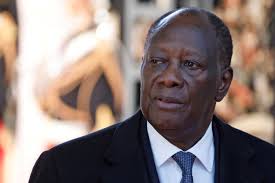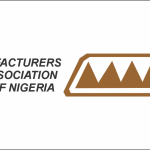
Côte d’Ivoire: Ouattara Announces Fourth-Term Bid After the Disqualification of Opposition

Côte d’Ivoire President Alassane Ouattara, 83, has officially announced on Tuesday his candidacy for a fourth term in the upcoming presidential election scheduled for October 25, 2025.
Despite earlier public assurances that he would not seek re-election, Ouattara justified his reversal by citing the country’s worsening security and economic landscape, which he said requires “experience” and “continuity.”
After careful consideration, I have decided to be a candidate in the presidential election, Ouattara said in a televised address. Our country is facing unprecedented security, economic and monetary challenges, the management of which requires experience.
He further claimed the country’s constitution, revised in 2016 to remove term limits, legally permits his candidacy. But while Ouattara insists his decision is rooted in necessity, critics at home and abroad see it as a blatant consolidation of power, enabled by a political environment marked by legal exclusions and institutional repression.
The president’s re-election bid follows the controversial sidelining of prominent opposition figures, including former President Laurent Gbagbo and opposition leader Tidjane Thiam, who have been barred from running under contested legal or administrative pretexts.
The announcement arrives when Côte d’Ivoire, once praised as a beacon of economic stability in West Africa, is increasingly viewed as a regional enforcer of foreign interests, particularly those of France and other Western powers.
Its role in a growing geopolitical divide between coastal and Sahelian states has drawn scrutiny, especially from neighbours such as Mali, Burkina Faso, and Niger.
Tensions have been further continued by the recent death of Burkinabé activist Alino Faso while in Ivorian custody, a case emblematic of the country’s deepening human rights crisis. Faso, a prominent political detainee, died in a government facility under murky circumstances.
The Ivorian government took three days to issue a statement, offering only vague bureaucratic language and providing no details on accountability, medical investigations, or communication with Faso’s family and the Burkinabé authorities.
This incident, critics argue, reflects a broader pattern of repression and impunity. The government continues to deny accusations of torture and politically motivated detentions, despite growing calls for transparency.
With the opposition fragmented and the electoral process already scrutinised, Ouattara is seen as the clear frontrunner. Yet his candidacy will likely deepen political divisions at home and intensify regional polarisation.
Read Also: Russia’s Energy Minister Meets Niger’s President, Signs Nuclear Cooperation Deal
About The Author
Related Articles
Asake Sets New Billboard Afrobeats Record as Chart Presence Grows
Asake has further cemented his place as one of Afrobeats’ most dominant...
ByWest Africa WeeklyJanuary 29, 2026Nigerians Lament PayPal’s Return as Old Wounds Resurface
PayPal’s reentry into Nigeria through a partnership with local fintech company Paga...
ByWest Africa WeeklyJanuary 29, 2026Tanzania Eyes Gold Sales as Aid Declines and Infrastructure Needs Grow
Tanzania is weighing plans to sell part of its gold reserves to...
ByWest Africa WeeklyJanuary 29, 2026Mali Tightens Grip on Explosives Supply With New Majority Stake
The Malian government has taken majority ownership of a civil explosives manufacturing...
ByWest Africa WeeklyJanuary 29, 2026












Leave a comment